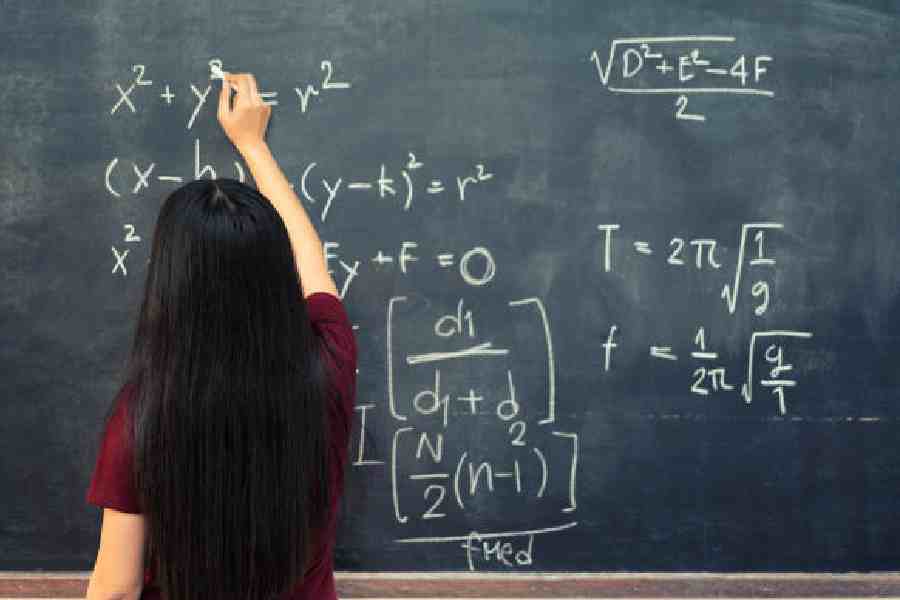Who’s afraid of numbers?


Maths phobia, for most people, takes root during the early days of school. More often than not, the reason for this is a poor understanding of the subject and the way it is to be approached. And as one moves from junior school to middle school,
the problems grow more complex, but without any greater clarity, the phobia merely intensifies.
Nandita Sen has taught mathematics at Calcutta’s G.D. Birla Centre for Education for 20 years. She says, “Maths is used in everyday life unlike many other subjects. The principle of three-res will surely be helpful to students. Restart solving, retry the problem and retrieve the confidence. Low marks do not mean you are weak. Keep time for revision and have faith in yourself.”
Not every student is scared of numbers. Sayak Chowdhury has always enjoyed mathematics and has won several national and international level maths Olympiads
during his schooldays at Mansur Habibullah Memorial School (South End), Calcutta. “From the time I was in Class XI, I felt that this is the only subject wherein one can get full marks with a lot practise and concentration. My suggestion to those who fear maths is — don’t memorise formulae or theorems. Try to understand them,” says Chowdhury, who is doing his bachelor’s degree in the subject from Calcutta’s St. Xavier’s College. He plans to do a master’s in applied mathematics.
Mathematics unlocks extensive opportunities in varied fields — from finance to computer science, artificial intelligence to machine learning, quantum computers to physics, chemistry to ecology. A student can also take mathematics at the bachelor’s level and switch to computer science, data science, statistics or any other related field for a master’s degree. It is even possible to major in mathematics and thereafter do a doctorate in biology, conductiong research on the mathematical modelling of a biochemical reaction within a living cell.
Like Chowdhury, Priyadarshini Bhowal also enjoys mathematics. “My mother made me fall in love with the subject right from my childhood,” says Bhowal, who completed her master’s degree in the subject from the University of Madras. Bhowal plans to do a doctorate, with a focus on modern algebra.
“Mathematics is a subject that has its own beautiful way of blending into the realms of the realistic world. It can be utilised to describe so many things in varied subjects. Realistic examples present in and around us can help one understand the various concepts of maths. Considering practical examples while doing sums can help overcome the fear of maths,” suggests Bhowal, currently a senior secondary mathematics teacher at Vidyanjali International School in Calcutta.
Devarshi Mukherjee wanted to pursue economics when he was in high school.
However, his economics score for the higher secondary examinations fell short of Delhi University’s cut-off percentage. “I did not want to give up on what would turn out to be three of the most socially enriching years of my life. I instead chose to pursue mathematics, which I always considered a close substitute to economics,” shares Mukherjee, who is currently a Feodor-Lynen postdoctoral fellow in the department of mathematics, University of Buenos Aires, Argentina, and University of Göttingen, Germany.
Apart from active research, Mukherjee has also taught mathematics, specialising in algebra and geometry, to bachelor’s, master’s and doctoral students. “Mathematics in school is very different from that at university — the latter being more focussed on a conceptual understanding of logical structures that largely remain opaque in school. I would strongly recommend soliciting information from the instructor on the historical motivation of the concepts being taught at any stage of mathematical training,” says Mukherjee, who completed his doctoral degree in mathematics from the University of Göttingen, Germany, and the University of Copenhagen, Denmark.